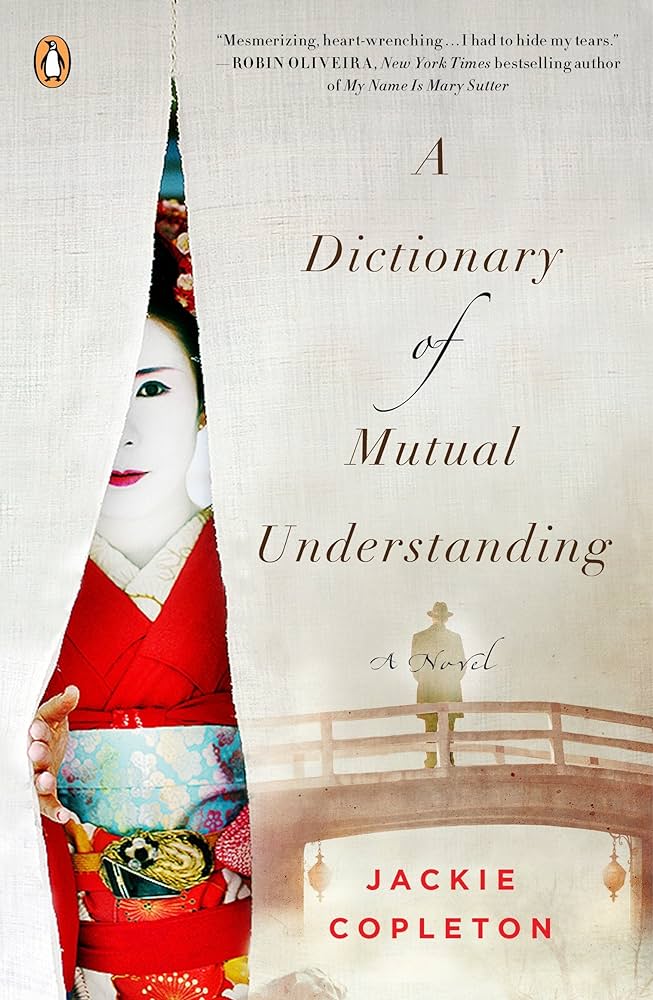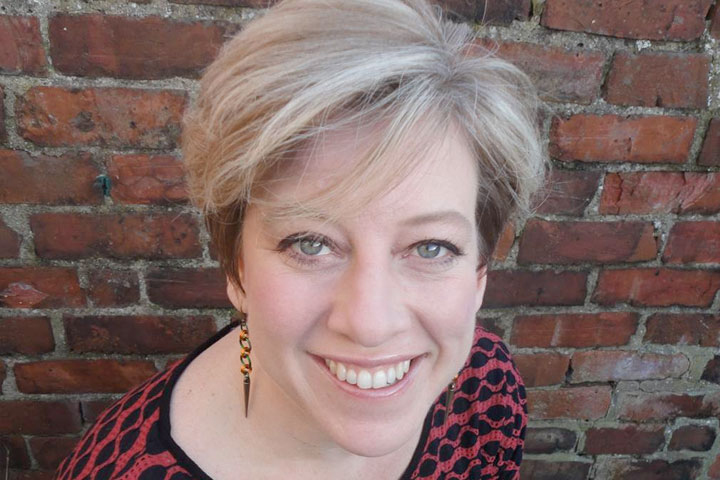From the Women’s Prize Archives.
We caught up with 2016 Baileys Women’s Prize longlisted author Jackie Copleton to find out about why she was inspired to write her longlisted book A Dictionary of Mutual Understanding about the Nagasaki bombings, why the passing of a beloved pet made her a writer and why she wrote her longlisted novel in a cupboard.
Why did you choose to set your debut in Japan?
I moved to Nagasaki after I graduated from university in the early 1990s when I taught English to adults, teenagers and children. During my time living in this beautiful city, I met peace campaigners, people who were documenting the stories of atomic bomb survivors and friends and students who were generous with their company, friendship and insight into the culture. Nagasaki’s fascinating trading past with the West and the tragedy that befell its inhabitants during the Second World War stayed with me long after I had left the country, particularly my memory of attending the 50th anniversary of the bombing. I’m not sure I’d have written a novel had I not stayed in Japan. Those years were an awakening to our capacity to create and experience extreme beauty and horror in the world.
What initially inspired you to sit down and write A Dictionary of Mutual Understanding?
The book is my love letter and my thanks to Nagasaki for how it helped form and expand my understanding of the world as a young adult. I didn’t intend or want to write about the atomic bomb, or even the Second World War, but our family, like so many, was irrevocably changed by that conflict. My gran was a war widow, pregnant with my mother when my maternal grandfather died. My paternal grandfather fought the Japanese in Burma and fell into the category of the silent soldiers who never spoke about the war. The novel helped me gently explore the missing pieces in my own past. My parents are now in their seventies and I think the book is about trying to better understand the losses they experienced while we can still have those conversations.

Did you always want to be a writer?
Yes, ever since my pet dog Smartie was hit by a car and killed when I was a child. I remember I was about to go off to a school disco when my parents broke the news. I wrote a poem in tribute to him, and stapled my verses and one of his white mongrel hairs on to a polystyrene board for posterity. My mum praised the poem, and thinking about the words made me feel better. That’s all it took. Every big decision since my teenage years has probably been influenced by my desire to write. I chose English literature as my degree subject, taught English to learn more about the language and became a journalist so that my working life would be spent thinking about words. But it wasn’t until I hit my mid-thirties before I seriously set about tackling a novel. Again my mum was instrumental. ‘If you want to write, just write.’ Well said, Roberta. And thank you.
Do you have a particular place where you like to write?
I started writing what would become the book in a cupboard. I’d just read A Room of One’s Own by Virginia Woolf and was living in a one-bedroom flat with my then boyfriend, now husband. The hall cupboard was as close as I could get to a study. I bought a cheap desk and set up shop next to pungent shoes, old coats and boxes of video tapes (it was a sizeable cupboard). I’d close the door and away I’d go. Now I work in my kitchen, but I like to have my desk facing a plain wall. That said, latter parts of the book were edited while I looked on to the shores of Loch Long, in Argyll, across from the UK’s storage facility for its nuclear warheads. The view and location seem apt given the subject matter of the novel.
Which authors inspire you most?
I hope this doesn’t sound like a cop-out but I always find this question tough to answer. For any writer to reach ‘The End’ is an accomplishment. The author that inspires me is always the one whose book I happen to have in front of me, which today is My Name is Lucy Barton by Elizabeth Strout. I’ve set myself the task of reading all the other 19 long-listed books before the shortlist is announced. So, if you’ll excuse me, at least 1.5million words still beckon…








